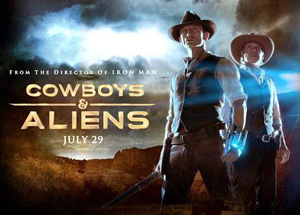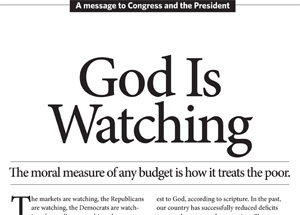Religious
For the past 30 years, through my work with Maryknoll and Pax Christi International, I've come to know grassroots communities around the world in situations of war and poverty. My mission focus base been largely international, but people, were in the "center of my screen." The environment, I thought, would have to wait.
A few weeks ago, I went with two of my grandchildren, Lauren (10) and Bobby (9), to see the documentary Hubble, which is about NASA's final shuttle expedition to repair a a broken part of the Hubble telescope. We watched in awe at the spectacular photos of the expanding universe. What an amazing sense these photos give of our own location as humans who are part of a larger earth community, who are part of a cosmos with which our own future is inextricably linked.
Earlier this summer I attended a church service where the pastor, a man struggling with what appears to be his final bout with cancer, preached about the hope that Jesus promises to those who trust in him. After describing the returning Jesus brandishing a sword and dripping with the blood of all our vanquished enemies, he invited the audience to share what they saw as the hope that this Jesus promises. The responses ranged from no cancer, to no pain, to no worries about paying the bills, to the promise of an upgraded body -- all of course in heaven someday after we die. The congregation was encouraged to find contentment in the present from the possibility of realizing these promises someday. Our souls are what matter; the body just has to endure until our souls reach heaven. No mention of help with how to pay this month's rent or what it means for a cancer-ridden body to be the temple of the Holy Spirit, just the spiritual promise that someday all will be well.
When the Alabama legislature passed their infamous, anti-immigrant law (HB 56), the religious community in the state immediately cried foul. Jim Wallis and other national leaders condemned the law as unjust and immoral.
HB 56, which will go into effect September 1, attacks virtually every aspect of immigrants' lives. Among many punitive measures, it authorizes police to detain anyone they suspect is undocumented, mandates criminal penalties for those who transport undocumented migrants, and demands that public schools determine the immigration status of all students.
 Whenever I give talks on the effects of the Israeli occupation on Palestinian livelihood, the status of nonviolence as a means to resisting the occupation, and how I believe nonviolence is the only way to move forward to resolve the conflict and create a lasting peace between Israelis and Palestinians, one of the first and immediate questions I get from foreign visitors to my office in Bethlehem is, What you said is good, but what about the Muslims? Do they also believe in nonviolence? Do they understand it?" Even if I don't mention religion in my presentation -- and I rarely do -- this question always seems to make its way in our discussions.
Whenever I give talks on the effects of the Israeli occupation on Palestinian livelihood, the status of nonviolence as a means to resisting the occupation, and how I believe nonviolence is the only way to move forward to resolve the conflict and create a lasting peace between Israelis and Palestinians, one of the first and immediate questions I get from foreign visitors to my office in Bethlehem is, What you said is good, but what about the Muslims? Do they also believe in nonviolence? Do they understand it?" Even if I don't mention religion in my presentation -- and I rarely do -- this question always seems to make its way in our discussions.
 Americans have a hard time knowing how to respond to the sins of our colonial past. Except for a few extremists, most people know on a gut level that the extermination of the Native Americans was a bad thing. Not that most would ever verbalize it, or offer reparations, or ask for forgiveness, or admit to current neocolonial actions, or give up stereotyped assumptions -- they just know it was wrong and don't know how to respond. The Western American way doesn't allow the past to be mourned or apologies to be made. Instead we make alien invasion movies.
Americans have a hard time knowing how to respond to the sins of our colonial past. Except for a few extremists, most people know on a gut level that the extermination of the Native Americans was a bad thing. Not that most would ever verbalize it, or offer reparations, or ask for forgiveness, or admit to current neocolonial actions, or give up stereotyped assumptions -- they just know it was wrong and don't know how to respond. The Western American way doesn't allow the past to be mourned or apologies to be made. Instead we make alien invasion movies.
In the wake of the tragic bombing in Norway this past weekend, we are left with an unsettling picture of the state of anti-Islamic sentiments in the United States. There were broad attempts to blame the bombings on Islamic terrorism before all of the facts of the attack were out, and even after the attacker became known as Anders Behring Breivik, a self-proclaimed Christian extremist, the discussion focused on Breivik's statement that he was responding to the threat Muslims pose in Europe.
 The markets are watching, the Republicans are watching, the Democrats are watching, the media are watching, the pollsters and pundits are watching. The public is watching and is disgusted with Washington, D.C.
The markets are watching, the Republicans are watching, the Democrats are watching, the media are watching, the pollsters and pundits are watching. The public is watching and is disgusted with Washington, D.C.
When it comes to the bitter and ultra-partisan battles over the budget, the deficit, and the fast-approaching deadline for America defaulting on its financial commitments, the whole nation and even the world is watching.
But God is watching too.
Today is another intense day of politics at the White House. The debt default deadline is fast approaching. The stakes for the nation are high as politicians can't agree on how to resolve the ideological impasse on how to reduce the deficit before the nation defaults on its financial obligations.
Yesterday, before Congressional leaders were due at the White House for critical negotiations, I, along with 11 other national faith leaders, met with President Obama and senior White House staff for 40 minutes. We were representing the Circle of Protection, which formed in a commitment to defend the poor in the budget debates. Sitting in the Roosevelt Room of the White House, we opened in prayer, grasping hands across the table, and read scripture together. We reminded ourselves that people of faith must evaluate big decisions on issues like a budget by how they impact the most vulnerable.

"The mental space [books] occupied is being eroded by the thousand Weapons of Mass Distraction that surround us all," Hari told me last week. "It's hard to admit, but we all sense it: it is becoming almost physically harder to read books."
[Okay, I admit I didn't actually talk with Hari. The quote is from his newspaper column. But pop over to Twitter, and you can see how, in effect, he gave me permission to paraquote him at #interviewbyhari.]
Anyway, where was I? Oh, yeah, long-form reading. Hari quotes David Ulin, author of The Lost Art of Reading: Why Books Matter in a Distracted Time, who wrote that he "became aware, in an apartment full of books, that I could no longer find within myself the quiet necessary to read." Ulin wrote that he would sit down with a book, and find his mind wandering, enticing him to check his email, or Twitter, or Facebook. "What I'm struggling with," he writes, "is the encroachment of the buzz, the sense that there's something out there that merits my attention."

- How do you like your chocolate chip cookies? (Personally, I prefer thick, chewy, and not too sweet.)
- Are you a stay-at-home dad?
- Learn more about new media and faith.
- Religious groups are part of the suit against Alabama immigration law (hat tip: CCIR).
- The changing face of AIDS.
The email came just a few days before two Jewish rabbis and two Muslim friends joined two of us Christian ministers for a Sunday morning service. This service was part of a national event called Faith Shared.
Last evening, President Obama made his long-awaited announcement on beginning withdrawal of the 103,000 U.S. troops from Afghanistan.
When trying to make sense of the changes that new media have brought to us, we can use either supplementary or substitutionary logic. With supplementary logic, Facebook et al. extend the range of our embodied relationships; with substitutionary logic, social media replace them. Those who want to use social media to enhance their churches' outreach implicitly use supplementary logic. Those who want to worship online and don't want to change out of their pajamas or meet other people in their messy particularity ... well, you get the idea.
A recent trip to New York City for a first meeting of the New Media Project Research Fellows reminded me of the superiority of supplementary to substitutionary logic. This happened because the neighborhood around Union Theological Seminary is so deliciously, specifically, embodiedly particular. Union itself is a marvel: its gothic architecture makes it unmistakable that this is a place with history. Niebuhr taught here; Bonhoeffer smoked and worried and decided to go home here; James Cone and Christopher Morse teach here; Serene Jones leads here. The neighborhood extends this particularity; the Jewish Theological Seminary, down Seminary Row, has a glorious crest above its door: "And the bush was not consumed." A tunnel under Union leads you to the grandeur of Riverside Church, where Fosdick and Forbes thundered. Go a few blocks south and east, and you're at The Cathedral of St. John the Divine, the largest interior church space in North America. The morning I visited, the light shone blue through the rose window, filling the clerestory with incandescent beauty. The chapel at Columbia University, with its stained glass above the altar depicting St. Paul preaching on Mars Hill, is a perfect image for situated Christian truth vis-à-vis the gods on campuses and in Manhattan.
This past weekend, Christians around the world celebrated one of our holiest holi-days: Pentecost. Pentecost, which means "50 days," is celebrated seven weeks after Easter (hence the 50), and marks the birthday of the Church, when the Holy Spirit is said to have fallen on the early Christian community like fire from the heavens. (For this reason, lots of Christians wear red and decorate in pyro-colors. This day is also where the fiery Pentecostal movement draws its name).
But what does Pentecost Sunday have to do with just another manic Monday?
What does a religious event a couple of thousand years old have to offer the contemporary, pluralistic, post-Christian world we live in? I'd say a whole lot. Here's why:
Let me start by confessing my bias. Not only am I a Christian, but I am a Christian who likes fire. I went to circus school and became a fire-swallowing, fire-breathing, torch-juggling-pyro-maniac as you'll see here. So naturally, I like Pentecost.
Some controversy has arisen about an ad campaign that a new coalition wanted to run in Sojourners on the issue of the LGBTQ community and the church. We chose not to run the ad as this is an issue we want to openly discuss on and through our editorial pages and not through our ad space. Like the larger church, Sojourners' constituency, board, and staff are not of one mind on all of these issues. However, we at Sojourners seek to foster honest, fair, and loving dialogue among Christians. LGBTQ issues may not be our primary calling as our work against poverty and hunger, and for peace, but based on some reactions to our decision, I want to use this as an opportunity to clarify the positions and practices of Sojourners on this important discussion on the life of the church in the early 21st centur